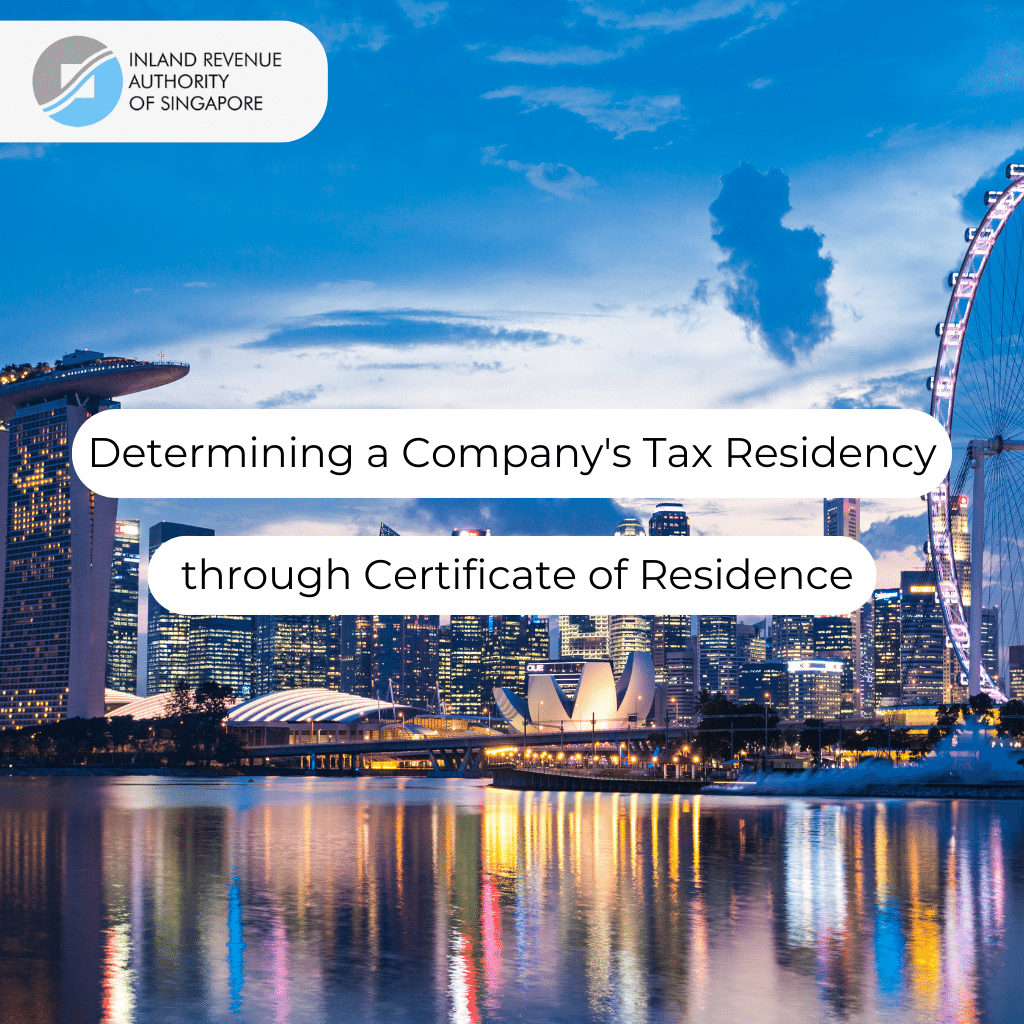 0
0
SHOPPING CART

Control and Management under Singapore Tax Law
The determination of a company’s tax residency in Singapore hinges on where its business is controlled and managed. This residency status can change from one year to the next.
In a general sense, for a specific Year of Assessment (YA), a company is deemed a tax resident in Singapore if its business’s control and management occurred within Singapore in the previous calendar year. To illustrate, for YA 2023, a company qualifies as a Singapore tax resident if its business’s control and management happened entirely within Singapore in 2022.
Conversely, a company is classified as a non-resident when the control and management of its business doesn’t take place in Singapore.
The term ‘control and management’ refers to decision-making on strategic matters, such as a company’s policy and strategy. The location where a company exercises its control and management is a factual inquiry.
Typically, the determination of control and management hinges on the location of the company’s Board of Directors meetings where pivotal strategic decisions are made. However, solely holding these meetings in Singapore might not suffice under certain circumstances. In such cases, IRAS examines all information presented by the company to ascertain if the business’s control and management indeed occurs in Singapore.
[NEW!] In cases involving the utilization of virtual meeting technology during Board of Directors meetings, the strategic decisions made in Singapore are generally acknowledged if either of these conditions is met:
Virtual meeting technology encompasses any tool allowing participation in a meeting without physical presence at the meeting location.
Scenarios where the control and management of a company may not be regarded as occurring in Singapore include:
The place where a company is incorporated doesn’t necessarily indicate its tax residency.
Investment Holding Companies Owned by Foreign Entities
Investment holding companies owned by foreign entities, primarily earning passive income or receiving solely foreign-sourced earnings, typically do not qualify as tax residents of Singapore. This is because these entities usually operate under the directives of their foreign companies or shareholders.
Nevertheless, there are circumstances under which they might meet specific criteria to be considered tax residents of Singapore.
A foreign-owned company is one where 50% or more of its shares are held by:
This ownership criterion is assessed at the highest level of the holding company.
Non-Singapore Incorporated Companies and Foreign Companies’ Singapore Branches
Non-Singapore incorporated companies and the Singapore branches of foreign companies operate under the direction and management of their foreign parent entities. Consequently, they are not typically regarded as tax residents of Singapore.
Yet, there are situations in which they could potentially fulfill specific criteria to be classified as Singapore tax residents.
Companies whose tax residency status might be impacted by travel restrictions related to COVID-19 can find further guidance and information in the document titled “COVID-19 Support Measures and Tax Guidance For Businesses.”
The Impact of Tax Residency on Corporate Income Tax
Although both tax resident and non-resident companies are generally subject to similar taxation, tax resident companies benefit from certain advantages, including:
Certificate of Residence
The Certificate of Residence (COR) is an official document issued by IRAS to confirm a company’s tax residency status in Singapore. This certification is vital for claiming tax benefits outlined in the Double Taxation Agreements (DTAs) Singapore has established with other jurisdictions. Typically, foreign tax authorities request the COR as evidence of the company’s tax residency in Singapore.
Discover the application process for a COR.
If your company needs help filing taxes for the year 2023, or requires assistance with Singapore incorporation, economy, banking, etc., feel free to call/WhatsApp us at +65 90612851 or email us at aceglobalacct@gmail.com. Alternatively, you may leave us a reply using our contact form below.
Keep in touch to receive the latest listing, news updates and special offers delivered directly to your inbox.
